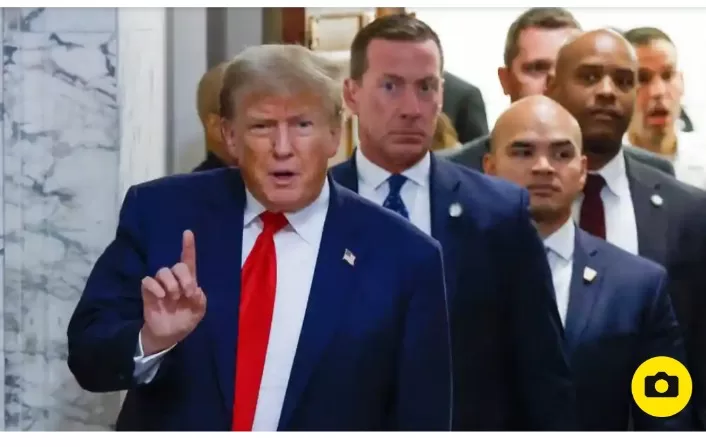In a surprising turn of events, Troy Nehls, a Texas Republican, has declared his intention to nominate former President Donald Trump as the next speaker of the United States House of Representatives. This comes after the unprecedented removal of Kevin McCarthy, another Republican, from the position.
Nehls stated, “This week, as the U.S. House of Representatives reconvenes, my foremost priority will be to nominate Donald J Trump for the role of speaker of the U.S. House of Representatives. President Trump, widely regarded as the greatest president in my lifetime, has a well-documented history of prioritizing American interests and has the potential to restore the House to its former glory.”
It’s worth noting that the speaker of the House does not necessarily have to be a member of Congress, although no speaker has ever assumed the role without being a sitting member.
While Trump’s name has been previously considered for this role, including during a prolonged vote count in January, it is noteworthy that Nehls did not join the faction of right-wing Republicans who voted to remove McCarthy from his position.
Another Republican congressman, Greg Steube of Florida, has also expressed support for Trump as speaker.
Donald Trump remains a prominent figure in the Republican party, even in the face of numerous legal challenges, including 91 criminal charges related to election subversion, retention of classified information, and hush-money payments. He is currently embroiled in a New York fraud trial and a defamation trial stemming from a rape allegation that a judge has deemed “substantially true.”
Speculation continues to swirl about what it would take to derail Trump’s presidential ambitions. A recent book by author Michael Lewis suggests that Sam Bankman-Fried, a disgraced cryptocurrency billionaire, contemplated offering Trump $5 billion to step aside.
Additionally, Fox News host Sean Hannity, known for his close association with Trump, revealed that “some House Republicans” have initiated efforts to draft Trump as speaker. While Trump has previously stated he does not desire this role, Hannity suggested that he might be open to assisting the Republican party in the short term while still pursuing a presidential run.
However, various obstacles stand in the way of Trump becoming speaker, including House ethics rules and Republican party regulations. These rules stipulate that a member of the Republican leadership should step aside if indicted for a felony that carries a potential sentence of two or more years of imprisonment.
Despite these developments, some observers remain skeptical, asserting that Trump’s ascension to the role of speaker is highly unlikely. The dynamics within the Republican party and the broader political landscape suggest that the path forward remains uncertain.




